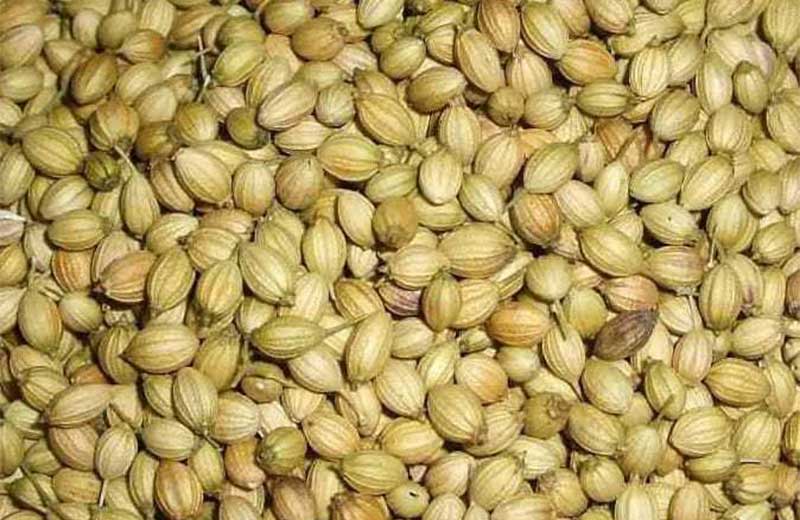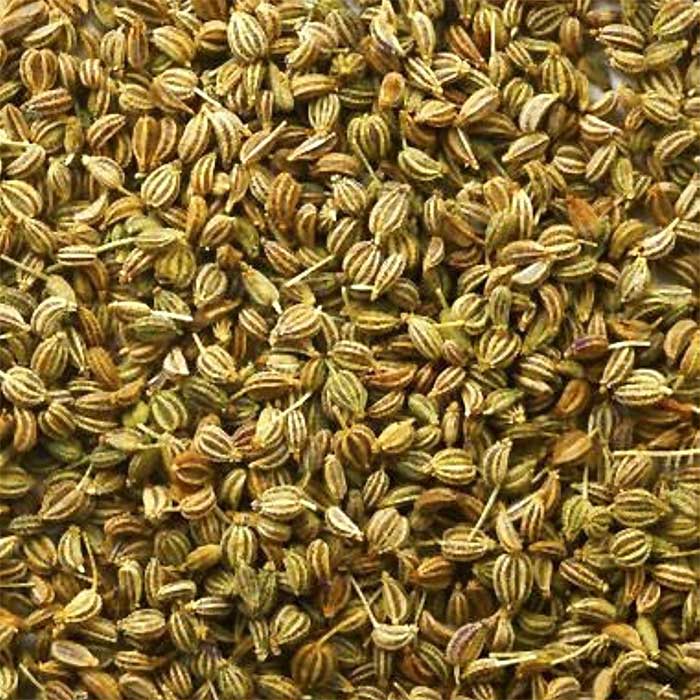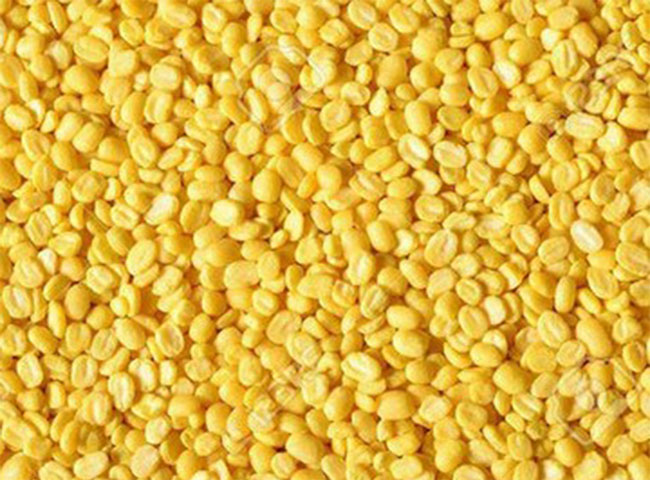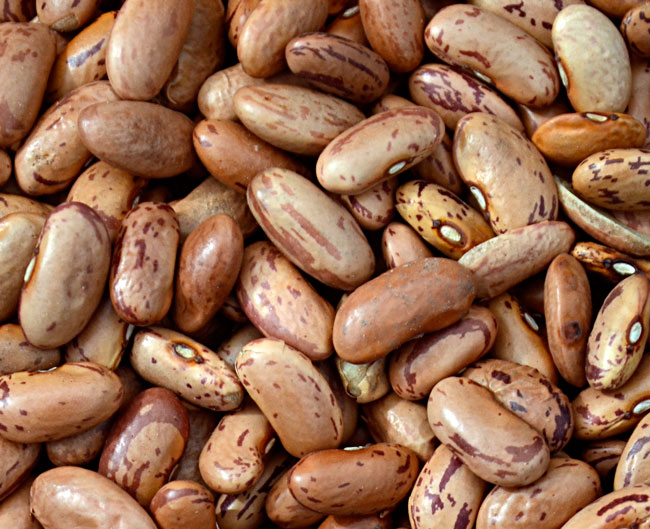Coriander Whole Dhania Sabut : Coriander whole refers to coriander seeds, which are the dried seeds of
the coriander plant (Coriandrum sativum). These seeds are small, round, and light brown or yellowish in
color, and they have a warm, citrusy flavor when ground. Cooks and traditional healers commonly use them.
Uses of Coriander Whole Dhania Sabut:
- As a Spice:
Ground form: Cooks often roast and grind whole coriander seeds into a powder for use in spice blends (like garam masala) or directly in recipes like curries, soups, and stews.
Tempering or seasoning: Also used for tempering of the dishes by frying in hot oil or ghee to release aroma.
- In Pickling:
People widely use whole coriander seeds in pickling recipes for vegetables, as their earthy, lemony flavor complements the tang of vinegar and salt.
- Flavoring Rice and Grains:
Coriander seeds are added to rice dishes or grain salads to infuse them with a subtle, aromatic flavor. They can be used whole or slightly crushed.
- Herbal Teas and Beverages:
Coriander seeds are often boiled in water to make herbal tea, which can aid digestion, reduce bloating, and improve appetite. It is also a common ingredient in spiced drinks like chai.
- Marination:
Ground coriander is frequently used in marination for meats, fish, or paneer. The seeds add flavor and help tenderize the proteins.
- Medicinal Uses:
- Practitioners of traditional medicine use coriander seeds to relieve indigestion, bloating, and gas. They also rely on their antibacterial properties and mild diuretic effects.
Baking:
It is also used in baking, particularly in rye bread, biscuits, and cakes, as the seeds provide a pleasant, slightly sweet flavor.
Health Benefits:
- Anti-inflammatory: Coriander seeds have anti-inflammatory properties that may help reduce swelling and pain.
- Blood sugar regulation: Studies suggest that coriander seeds can help manage blood sugar levels.
- Rich in antioxidants: These seeds are a good source of antioxidants, which support the immune system and overall health.
Whole coriander seeds add a distinctive flavor and aroma to various dishes and are versatile in both culinary and medicinal applications.
Coriander Whole Dhania Sabut : “धनिया साबुत” से तात्पर्य है धनिया के बीज, जिन्हें इंग्लिश में “Coriander Seeds” कहा जाता है। ये गोल, भूरे या हल्के पीले रंग के छोटे-छोटे बीज होते हैं, जो धनिया पौधे से आते हैं। साबुत धनिया का उपयोग मसाले के रूप में किया जाता है और इसका स्वाद थोड़ा मीठा और मिट्टी जैसा होता है। इसे अक्सर सूखा भूनकर पाउडर बनाकर या साबुत रूप में विभिन्न भारतीय व्यंजनों में इस्तेमाल किया जाता है।
धनिया के बीज से भोजन में एक अलग खुशबू और स्वाद आता है, और ये विशेष रूप से करी, दाल, अचार और सूप में डाले जाते हैं।
साबुत धनिया के कई उपयोग होते हैं, खासकर भारतीय और अन्य एशियाई कुकिंग में। इसके कुछ प्रमुख उपयोग इस प्रकार हैं:
1. मसाले के रूप में:
- भूनकर और पीसकर: साबुत धनिया को हल्का भूनकर पीसकर पाउडर बनाया जाता है, जो विभिन्न व्यंजनों जैसे करी, सब्ज़ी, दाल, और चटनी में प्रयोग किया जाता है।
- तड़के में: साबुत धनिया का उपयोग तड़के में किया जाता है, जिससे खाने में एक अलग खुशबू और स्वाद आता है। यह विशेष रूप से दक्षिण भारतीय व्यंजनों में प्रचलित है।
2. अचार में:
- अचार बनाने में साबुत धनिया एक मुख्य घटक होता है, जो अचार को स्वादिष्ट और लंबे समय तक टिकाऊ बनाता है।
3. हर्बल चाय:
- धनिया के बीज को पानी में उबालकर हर्बल चाय के रूप में उपयोग किया जाता है, जो पाचन में मदद करती है और शरीर को डिटॉक्स करने में सहायक होती है।
4. पाचन के लिए:
साबुत धनिया का सेवन आयुर्वेदिक और प्राकृतिक चिकित्सा में पाचन तंत्र को सुधारने के लिए किया जाता है। इसे अक्सर सौंफ और जीरे के साथ मिलाकर खाने के बाद लिया जाता है।
To learn more about Indian Spices and Pulses click here
5. मैरिनेशन:
- धनिया के बीज का पाउडर मांस, मछली और पनीर के मैरिनेशन में मसाले के रूप में प्रयोग किया जाता है।
6. स्वास्थ्य लाभ:
- धनिया के बीज में एंटीऑक्सीडेंट, विटामिन C और खनिज होते हैं जो स्वास्थ्य के लिए लाभकारी होते हैं।
ये सूजन को कम करने, कोलेस्ट्रॉल नियंत्रित करने और रक्त शर्करा को स्थिर करने में सहायक होते हैं।
साबुत धनिया का उपयोग न केवल स्वाद बढ़ाने के लिए किया जाता है, बल्कि इसके कई औषधीय गुण भी होते हैं।




